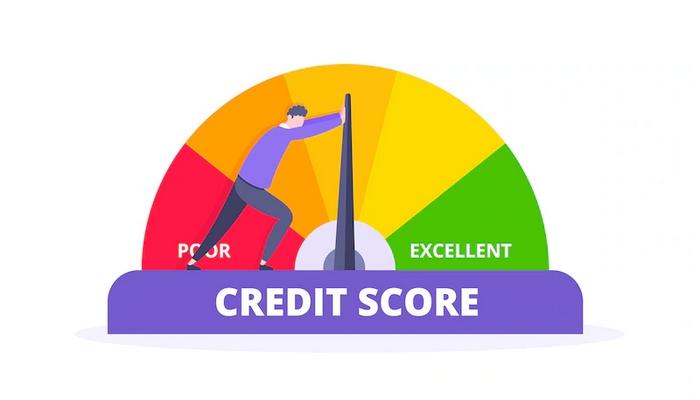Smart Strategies for Securing Used Vehicle Financing
When it comes to purchasing a used vehicle, financing can be a practical solution to manage the cost. However, understanding the intricacies of financing is essential to ensure you get the best deal possible.
Advertising
From interest rates to documentation requirements, there are several factors to consider before committing to a financing plan. This article will guide you through the various aspects of financing used vehicles, providing you with the knowledge needed to make informed decisions.
Advertising
Whether you’re looking to calculate financing costs or improve your chances of approval, this comprehensive guide will help you navigate the world of used vehicle financing with confidence.
Interest Rates for Financing Used Vehicles
Interest rates for financing used vehicles can vary significantly depending on several factors, such as your credit score, the financing term, and the chosen financial institution.
Advertising
In general, interest rates for used vehicles tend to be slightly higher than for new vehicles due to the higher perceived risk by financial institutions. It is important to research and compare the rates offered by different lenders to ensure you are getting the best possible deal.
How to Calculate Financing for a Used Vehicle

Calculating the financing for a used vehicle may seem complicated at first glance, but it is actually a relatively simple process. To calculate the financing, you will need to take into account the vehicle’s price, the interest rate, the financing term, and the down payment amount, if any.
There are several online financing calculators that can help you estimate your monthly payments and the total cost of financing.
Documentation Required to Finance a Used Vehicle
To finance the purchase of a used vehicle, you will generally need to provide some basic documents, such as proof of identity, proof of income, and proof of residence.
Additionally, you will also need to provide detailed information about the vehicle you are purchasing, including the year, make, model, and mileage.
The exact requirements may vary depending on the lender, so it is important to contact the financial institution to get a complete list of required documents.
Tips for Obtaining Approval for Financing a Used Vehicle
Obtaining approval for financing a used vehicle can be challenging, especially if you have a history of poor credit. However, there are some tips that can help increase your chances of approval.
For example, trying to improve your credit score before applying for financing, offering a larger down payment, or getting a co-signer with good credit can be effective strategies for getting financing approval.
Financing Used Vehicles: Banks vs. Dealerships
When it comes to financing the purchase of a used vehicle, you have the option of obtaining financing directly from a bank or from a dealership. Each option has its advantages and disadvantages.
For example, banks generally offer lower interest rates, but may be more stringent in their credit requirements. On the other hand, dealerships may offer more flexible financing, but interest rates tend to be higher. It is important to compare the available options to find the best deal for you.
Financing Used Vehicles with Low Credit Score
If you have a low credit score, it may be more difficult to obtain approval for financing a used vehicle. However, there are still some options available. For example, some lenders specializing in financing for customers with bad credit may be willing to offer you financing, although interest rates may be higher.
Additionally, offering a larger down payment or getting a co-signer with good credit can also increase your chances of approval.
Advantages and Disadvantages of Financing Used Vehicles
Financing a used vehicle has its own advantages and disadvantages that should be considered before making a decision. Some of the advantages include lower initial costs, slower depreciation, and the possibility of getting a quality vehicle at a more affordable price.
On the other hand, disadvantages may include higher interest rates, lower availability of models, and potential higher maintenance costs. It is important to carefully weigh these pros and cons before deciding if financing a used vehicle is the right choice for you.
What to Consider When Choosing Financing for a Used Vehicle
When choosing financing for a used vehicle, there are several factors to consider. In addition to interest rates, terms, and credit requirements, you should also take into account the total cost of financing, including any additional fees.
Additionally, it is important to check for any prepayment clauses in the contract, as this can affect your refinancing options in the future. Comparing multiple financing offers is the best way to ensure you are getting the best possible deal.
Alternatives to Traditional Financing for Used Vehicles
In addition to traditional financing, there are several alternatives that can be considered when financing the purchase of a used vehicle. For example, some banks and lenders offer personal loans that can be used to finance a vehicle purchase.
Additionally, leasing may be a viable option for those looking to drive a new vehicle every few years without the commitment of a purchase. It is important to explore all available options to find the best solution for your financial needs.
How to Avoid Pitfalls When Financing a Used Vehicle
When financing the purchase of a used vehicle, it is important to be aware of some common pitfalls that can arise. For example, some dealerships may offer financing with very high interest rates or unfavorable terms, so it is important to carefully read the contract before signing.
Additionally, avoid financing a used vehicle for a very long term, as this can result in higher monthly payments and overall higher costs. Conducting thorough research and being aware of your consumer rights can help you avoid these pitfalls and get a fair and advantageous financing deal.
In summary, financing used vehicles can be a great way to acquire a quality car without compromising your budget all at once. However, it is important to understand how this process works and to be aware of the key aspects to consider before closing the deal.
With the right information and a little research, you can get a fair and advantageous financing that meets your needs.





